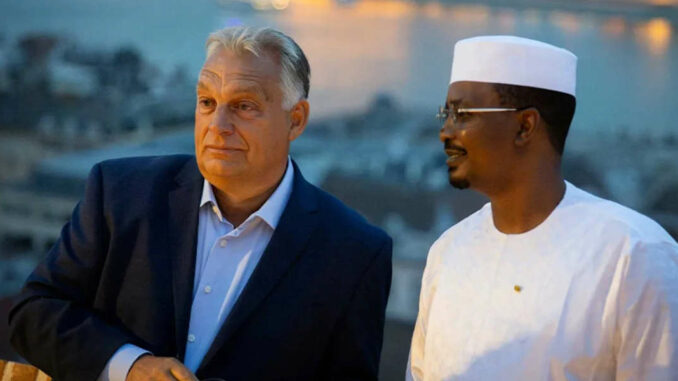
In a sharp pivot from its self-declared policy of neutrality, Hungary has approved the deployment of 200 soldiers to Chad — marking a significant and controversial military engagement in Africa’s volatile Sahel region.
The move, steered in part by Prime Minister Viktor Orbán’s son, Gáspár Orbán, contradicts Hungary’s refusal to support Ukraine militarily, raising eyebrows across the European Union and NATO. While Budapest blocks arms to Kyiv and rejects escalation in Europe, it is now embedding troops in one of Africa’s most dangerous theaters, citing counterterrorism and migration control. As Hungarian media reported in April, the country’s forces were to mentor Chadian troops in a NATO-backed exercise, a move justified by the Ministry of Defence as contributing to regional stability and stemming illegal migration.
Yet critics call it hypocrisy. For example a new analysis by the Robert Lansing Institute (RLI) questions “why is it acceptable to risk Hungarian lives in Africa, but not in defense of European allies?” Analysts warn that the deployment is less about policy and more about power — possibly grooming Gáspár Orbán, a religious conservative and ex-special forces officer, for future leadership. Strategic aims may include currying favor with France and the United States, securing energy interests, and expanding Hungary’s global influence. But risks loom large: potential Hungarian casualties, rising migration pressure, and even terrorist retaliation at home. With unclear goals and hidden costs, Hungary’s mission in Chad appears more like political theater than peacekeeping — one that may bring more blowback than benefit.
